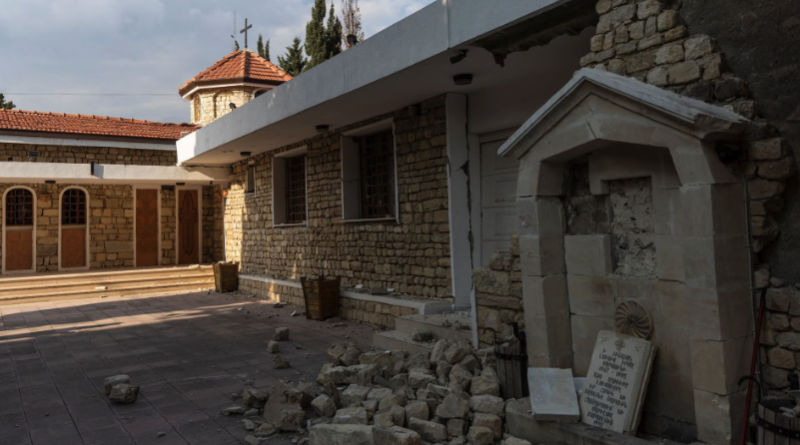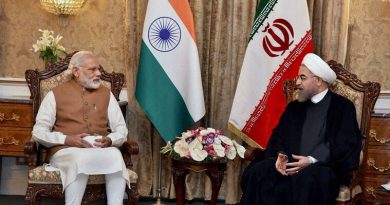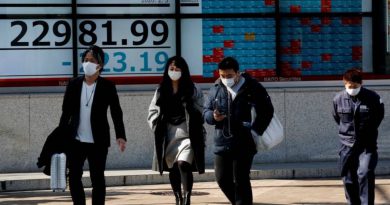Turkey’s last Armenian village fears for its future after quake
Turkey accepts that many Armenians living in the Ottoman Empire were killed in clashes with Ottoman forces during World War One, but contests the figures and denies it was systematic.
In Turkey’s only remaining ethnic Armenian village, Vakifli, the elderly population thank God that not one of them died during the devastating earthquakes that struck the region. But they fear for the future of their cherished home.
Thirty of the village’s 40 stone houses, which are single or double storey and surrounded by orange and lemon orchards, are heavily damaged, and since a third huge earthquake hit, the 130 villagers are without power. They gather at the tea house for shelter and warmth.
“Vakifli is all we have, the only Armenian village in Turkey. It is our home. Seeing it like this is breaking my heart,” said Masis, a 67-year-old retired jeweller, who moved back to his hometown after spending 17 years in Istanbul.
“This village is tiny and our children mostly prefer to live in Istanbul… This is the only home we’ve ever known. After this disaster, I don’t know how long it will take for the village to be rebuilt. I get really scared that most people will leave and the village will be abandoned,” he added.
Masis, who gave only his first name, vowed to stay as long as it takes to reconstruct.
Vakifli sits on Moses mountain in the province of Hatay, overlooking Samandag, a city on the western edge of Turkey’s long border with Syria. Villagers speak to each other in a local Armenian dialect, known as Moses Mountain Armenian, which is diluted with Arabic and Turkish words.
Turkey is overwhelmingly Muslim but hosts some ancient Christian communities – dwindling remnants of sizeable populations that lived in the Muslim-led but multi-ethnic, multi-faith Ottoman Empire, predecessor to modern Turkey.
Today, Turkey and Armenia are at odds primarily over the 1.5 million people Armenia says were killed in 1915 by the Ottoman Empire. Armenia says this constitutes genocide.
Turkey accepts that many Armenians living in the Ottoman Empire were killed in clashes with Ottoman forces during World War One, but contests the figures and denies it was systematic.
Last week Turkish Foreign Minister Mevlut Cavusoglu said humanitarian aid sent by Armenia for quake victims could boost efforts to normalise their relations.
Terrifying Darkness
Berc Kartun, the village head of Vakifli, said his two-storey house had been split open sideways and he was waiting for building inspectors. He had nowhere to store his valuables from the house, he added, sipping Turkish coffee in a paper cup outside the teahouse.
Armen Hergel, 64, said she has got used to living in the teahouse, which has a small generator and which she dubbed ‘the Hilton’, but the power outage in the village was a real problem.
“We need heating. We are trying to stay warm by drinking tea but the nights are cold and really scary in pitch darkness, with constant aftershocks.”
She was visiting her daughter in Istanbul when the first two quakes struck. She returned to Vakifli to tidy up.
“We thought the earthquakes had stopped… Then the third one hit on Monday evening and the damage was so much worse. Now our house is uninhabitable and we live half the time in the tea house and half the time in the tent.”
Women and men work together in the small kitchen, making soup and rice.
Close to the edge of the village stands the Holy Mother of God Armenian church.
Pastor Avedis Tabasyan said the third quake had caused the most damage. The church’s stone walls had fallen down and the baptismal font was broken. An altar cloth with embroidered pictures of Mary and Jesus was strewn with pieces of paint from the ceiling. Since the Feb. 6 quake, no Mass has been said.
“We were planning to renovate… God has shown us a different way to fix and renew our beloved place,” he said.
Can, a 26-year-old man, makes wine in the village, which is mostly sold to tourists.
“I studied winemaking in northern Turkey to spend my life here. Now that everything has to be demolished and rebuilt, I have no idea when we will get back on our feet,” he said.



